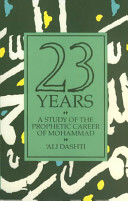 W
W23 Years: A Study of the Prophetic Career of Mohammad is a book written by the Iranian author Ali Dashti.
 W
WMusnad Abu Yaʽla, or Musnad Abu Yala, is a Hadith book, and was written by Imam Abu Yaʽla al-Mawsili .
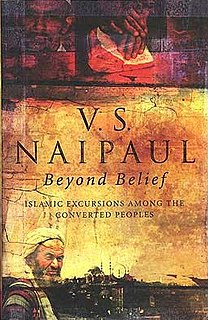 W
WBeyond Belief: Islamic Excursions among the Converted Peoples is a non-fiction book by V. S. Naipaul published by Vintage Books in 1998. It was written as a sequel to Naipaul's Among the Believers: An Islamic Journey (1979).
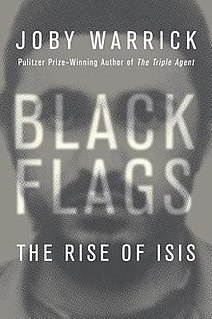 W
WBlack Flags: The Rise of ISIS is a 2015 non-fiction book by the American journalist Joby Warrick. The book traces the rise and spread of militant Islam behind the Islamic State of Iraq and the Levant. It won the 2016 Pulitzer Prize for General Non-Fiction.
 W
WThe Kitab al-Bulhan, or Book of Wonders, or Book of Surprises, is a mainly 14th century Persian manuscript compiled – and possibly illustrated – by Abd al-Hasan Al-Isfahani. The codex was probably bound during the reign of Jalayirid Sultan Ahmad (1382-1410) at Baghdad, and includes texts on astronomy, astrology, geomancy and a section of full-page illustrated plates dedicated to each discourse topic, e.g. a folktale, a sign of the zodiac, a prophet, etc.
 W
WThe Cambridge History of Islam is a two volume history of Islam published by Cambridge University Press in 1970 and edited by Peter Holt, Ann K.S. Lambton, and Bernard Lewis. It was reprinted in 1977 with amendments and each volume divided into two for ease of use. It was replaced by the six-volume New Cambridge History of Islam in 2010.
 W
WDebating Sharia: Islam, Gender Politics, and Family Law Arbitration is a 2012 book edited by Jennifer Selby and Anna C. Korteweg in which the authors focus on the legal ramifications of Sharia law in the context of Western liberal democracies and examine the issue from different methodological perspectives.
 W
WDemystifying Islam: Tackling the Tough Questions is a 2014 non-fiction book by Harris Zafar.
 W
WA Dictionary and Glossary of the Koran, was first published in 1873 by John Penrice. it is a small compact reference guide consisting of 180 pages. It contains detailed entries on parts of speech and the meanings of words of the Quran. It is supposed to be an authoritative work of its kind. It has, at places, explained the Islamic tenets and article of worship also, to make the text comprehensive.
 W
WAl-Mufradat fi Gharib al-Quran is a dictionary of Qur'anic terms by 11th-century Sunni Islamic scholar Al-Raghib al-Isfahani.
 W
WThe Encyclopedia Islamica is an encyclopedia on Islamic and Iranian studies published by Brill, comprising a projected 16-volume translation of selected articles from the new Persian Dā'erat-ol-Ma'āref-e Bozorg-e Eslāmi, supplemented by additional articles written in English by scholars affiliated with the Institute of Ismaili Studies.
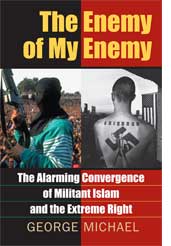 W
WThe Enemy of My Enemy: The Alarming Convergence of Militant Islam and the Extreme Right is a book by political science professor George Michael of the University of Virginia Wise. It examines the alliances between neo-Nazis, Holocaust deniers, and white separatists with Islamists such as Al Qaeda, Hezbollah, Hamas, and Egyptian Islamic Jihad.
 W
WEssence of Life, or Ayn al-Hayat, is a book of Hadith in Persian by Muhammad Baqir al-Majlisi.
 W
WFaizan-e-Sunnat (Urdu: فیضان سنت, is an Islamic religious text composed mainly of treatises by the Pakistani Sunni scholar and founder of Dawat-e-Islami Muhammad Ilyas Qadri on the merits of good deeds.
 W
WFara'id al-Simtayn is a hadith collection by the Sunni scholar Ibrahim b Muhammad b Himaway al Juwayni, who died in 1322 AD. He was born in 644 AH or 1246 CE.
 W
WFatawa-e-Razvia or Fatawa-e-Radaviyyah is major book of fatwas for Barelvi Muslims, authored by 19th century Sunni Islamic scholar Ahmed Raza Khan.
 W
WFatemeh is Fatemeh is a book written by Ali Shariati. In the book, Fatima Zahra the daughter of the Islamic prophet Muhammad is described as a role model for Muslim women around the world and a woman who is freedom. It was written in the pre-revolutionary era of Iran's history where there were no specific sources by which one might interpret who she was, and he assures the readers that he is giving them more than an analytical description of her personality and that it needs the criticism of the enlightened thinker. By writing this book he was to complete the work of French scholar Professor Louis Massignon.
 W
WThe Four Books, or The Four Principles, is a Twelver Shia term referring to their four best-known hadith collections:
 W
WFutuh al-Haramayn is considered the first Islamic guidebook for pilgrimage. It was written by Muhi al-Din Lari and completed in India in 1505–6. The book was dedicated to Muzaffar ibn Mahmudshah, the ruler of Gujarat. No early illustrated Indian copies are known, but later in the 16th century it was widely copied in Ottoman Turkey. The book describes the full rituals of the Hajj in order, and describes the religious sites one can visit.
 W
WFuture Jihad: Terrorist Strategies Against America is a book by Middle East expert and scholar Walid Phares.
 W
WMusannaf Ibn Abi Shaybah is one of the well-known compilations of Hadith (narrations) of Mohammad, his predecessors and companions. These prophetic traditions, or hadith, were collected by Muslim scholar Ibn Abi Shaybah (159H-235H).
 W
WRiyad as-Salihin or The Meadows of the Righteous, also referred to as The Gardens of the Righteous, is a compilation of verses from the Quran supplemented by hadith narratives written by Al-Nawawi from Damascus (1233–1277). The hadith by al-Nawawī belongs to the category of canonical Arabic collections of Islamic morals, acts of worship, and manners, which are attributed to Muhammad by Muslim scholars but not found in the Quran. The book is widely accepted to the modern Salafi scholars. Besides, Tablighi Jamaat suggests reading the book to their Arabic speaking communities instead of Fazail-e-Amal written by Zakariya Kandhlawi.
 W
WGod's Caliph: Religious Authority in the First Centuries of Islam is a book co-authored by Middle East Scholars and historiographers of early Islam Patricia Crone and Martin Hinds.
 W
WA Great Collection of Fabricated Traditions,, is a collection of fabricated hadith collected by Abu'l-Faraj ibn al-Jawzi (d.1201) for criticism.
 W
WThe Han Kitab are a collection of Chinese Islamic texts, written by Chinese Muslims, which synthesise Islam and Confucianism. Their name reflects this synthesis: Han is the Chinese word for Chinese and kitab means book in Arabic. They were written in the early 18th century during the Qing dynasty by various Chinese Muslim authors. The Han Kitab were widely read and approved of by later Chinese Muslims such as Ma Qixi, Ma Fuxiang, and Hu Songshan.
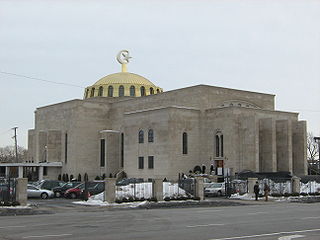 W
WHow To Eat To Live is a series of two books published by Nation of Islam leader Elijah Muhammad in the 1960s, which are still in print. (ISBN 978-1884855160) The books cover his philosophies on healthy eating and the Black Muslims' prescribed diet.
 W
WIllegal Citizens: Queer Lives in the Muslim World is a book by American writer Afdhere Jama. and published in 2008 by Salaam Press.
 W
WIran: From Religious Dispute to Revolution is a book by scholar Michael M.J. Fischer, written in 1980. The book is about the role of Islam in Iran and its relation to the 1979 Iranian revolution. The book was first published by Harvard University Press in 1980.
 W
WISIS: Inside the Army of Terror is a 2015 non-fiction book by the journalists Michael Weiss and Hassan Hassan. The book details the rise and inner workings of the terrorist group ISIS.
 W
WIslams and Modernities is a book by Aziz al-Azmeh, a professor at Central European University in Budapest, Hungary. It was released in 1993. The book explores the history of interaction between Islam and Europe, analyzing myths about those interactions created by Orientalist and Islamist viewpoints. A new version was released on August 7, 2009, also examining "the discourse surrounding Islamism and irrationalism after 9/11."
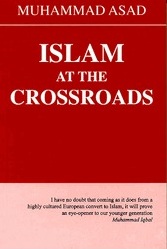 W
WIslam at the Crossroads is a book written by Muhammad Asad. The book originally published in Delhi and Lahore in 1934, and was later reprinted by Dar Al-Andulas in 1982 with an additional note by the author.
 W
WJami Sahih is, along with Tartib al-Musnad, the most important hadith collection for Ibadis. It was compiled by Al-Rabi' bin Habib Al-Farahidi and later on organized and arranged by Yusuf Ibrahim al-Warjilani. The most frequent transmitter is Jabir ibn Zayd.
 W
WJihad: The Rise of Militant Islam in Central Asia is a 2002 non-fiction book written by Ahmed Rashid.
 W
WJihad The Trail of Political Islam is a book by French author and scholar Gilles Kepel. It was originally published in French in 2000 by Gallimard, with English translations by Anthony F. Roberts from Belknap Press in 2002 and I.B. Tauris in 2006.
 W
WKitab al-Buldan is a book written by the author, and geographer Abu Abbas Al-Yaqoubi and it is one of the oldest Arab geographical sources dating back to the days of Abbasid Caliphate. The text describes many countries such as Iran, Turkestan, Afghanistan, Iraq, Egypt, Maghreb, and other countries in Asia and Africa. The first edition of the book was printed by the Dutch monarch, M. de Goeje, Leiden in 1850 and then in 1892.
 W
WThe Lawful and the Prohibited in Islam is a book by Islamic scholar Yusuf al-Qaradawi. originally published in 1960 under the Arabic title Al-Halal Wal-Haram Fil-Islam. Some translations into English of the work include those published by:Ahl-al-bait, with annotations and commentary by Allamah Shaikh Hasan Muhammad Taqi al-Jawahiri. American Trust Publications published January 30, 1999. El Falah, in 1997. Islamic Book Trust, Malaysia
 W
WThe Legacy of Jihad: Islamic Holy War and the Fate of Non-Muslims is a book by Andrew Bostom, a medical doctor who has written several other works discussing Islamic intolerance. The foreword was written by author and ex-Muslim, Ibn Warraq. The book is framed as a rejection of the notion that Islam is a peaceful religion and sets out to prove that Islam is violent and intolerant.
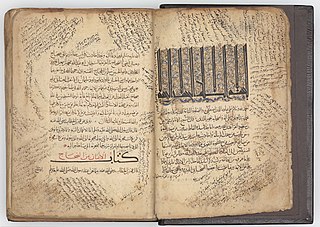 W
WMasabih al-Sunnah is a collection of hadith by the Persian Shafi'i scholar Abu Muhammad al-Husayn ibn Mas'ud ibn Mubammad al-Farra' al-Baghawi, from sometime before 516 H. An improved version of this work, Mishkat al-Masabih, has additional hadith, and was the work of another Persian traditionist Al-Tabrizi d. 741H.
 W
WThe Meaning of the Glorious Koran (1930) is an English Language translation of the Quran with brief introductions to the Surahs by Marmaduke Pickthall. In 1928, Pickthall took a two-year sabbatical to complete his translation of the meaning of the Quran, a work that he considered the summit of his achievement. Pickthall noted the impossibility of perfectly translating the Arabic into English, and he titled his work The Meaning of the Glorious Koran. It was the first translation by a Muslim whose native language was English, and remains among the two most popular translations, the other being the work of Abdullah Yusuf Ali.
 W
WMilitant Islam Reaches America is a book written by historian Daniel Pipes, published in 2002. It focuses on Islamic fundamentalism and Islamism, reflecting Pipes' view that, as he said in 1995, "Unnoticed by most Westerners, war has been unilaterally declared on Europe and the United States."
 W
WMuhammad: A Biography of the Prophet is a biography of Muhammad by the British religion writer and lecturer Karen Armstrong, published by Gollancz in 1991.
 W
WFāțima bint Ibrahim ibn Mahmūd al-Bațā'ihiyya also known as Fatima al-Batayahiyyah was a Muslim scholar of hadith in the 8th century.
 W
WThe New Jackals: Ramzi Yousef, Osama bin Laden and the future of terrorism is a 1998 book by Simon Reeve.
 W
WOld Islam in Detroit: Rediscovering the Muslim American Past is a 2014 book by Sally Howell, published by the Oxford University Press. It discusses the Muslims of early 20th century Detroit, Michigan, and Detroit prior to 1970.
 W
WOne Thousand Roads to Mecca: Ten Centuries of Travelers Writing About the Muslim Pilgrimage is a collection of travel journals edited by Michael Wolfe and published in 1999. Covering over 20 accounts made over 10 centuries, this work shows many sides of the Hajj, the Pilgrimage to Mecca required of every able Muslim.
Our Teachings is an Urdu book published in 1902 by the founder of the Ahmadiyya movement, Mirza Ghulam Ahmad of Qadian, India. Mirza Ghulam Ahmad, a Messiah and Mahdi claimant, attempted to revive the purported original and pristine teachings of Islam. He entitled the book "Noah's Ark", implying that those who wanted to be saved from the deluge of irreligion and materialism should join the Ahmadiyya Muslim Community. Published in many languages, this English edition has been published by ‘Islam International Publications Limited’; Tilford, Surrey GUI0 2AQ. U.K. ISBN 1-85372-394-0] (1990)
 W
WRage Against the Veil: The Courageous Life and Death of an Islamic Dissident is a book by Parvin Darabi, an Iranian critic of Islam.
 W
WRed Shi'sm vs. Black Shi'ism is an essay written by the Iranian author Ali Shariati which discusses his ideas on the perceived dual aspects of the Shi'a religion throughout history. Red Shi'ism, which he sees as the pure form of the religion, which is concerned with social justice and salvation for the masses and is devoid of idolatrous rituals and established clergy. Black Shi'ism, which he sees as the deviated form of the religion, which is under the domination of both monarchy and clergy, out of touch with the needs of the masses, and which came to be established in Iran under the Safavids.
 W
WRefuting ISIS: A Rebuttal Of Its Religious And Ideological Foundations is a 2015 book by Muhammad al-Yaqoubi, a Syrian Islamic scholar and one of the 500 most influential Muslims in the world according to a ranking published by the Royal Islamic Strategic Studies Centre, that presents a response to ISIS' beliefs and crimes.
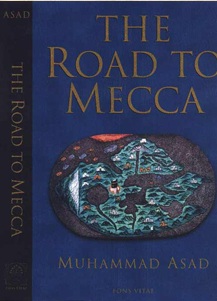 W
WThe Road to Mecca, also known as Road to Mecca or Road to Makkah, is the autobiography of Muslim scholar, intellectual, political theorist and spiritual writer Muhammad Asad.
 W
WThe Rushdie Affair: The Novel, the Ayatollah, and the West is a book written by historian Daniel Pipes, published in 1990. It focuses on events surrounding The Satanic Verses. The afterword was written by Koenraad Elst.
 W
WA Spirit of Tolerance: The Inspiring Life of Tierno Bokar is the only English translation of Amadou Hampate Ba’s book Vie en enseignement de Tierno Bokar, le sage de Bandiagara, originally written in French. This book describes the life of Tierno Bokar, a Malian Sufi who preached a message of religious tolerance. It was adapted into a play directed by Peter Brook titled Tierno Bokar.
 W
WTafsir al-Manar is a work of Qur'anic exegesis (tafsir) by Rashid Rida, the contemporary Islamic scholar and the major figure within the early Salafiyya movement. The tafsir work can be fitted into the category of modern tafsir, which is distinguishable from the classical tafsir in the sense that it approaches to more contemporary issues through the broader scope of methodology it employs for the interpretation. The tafsir is also notable in the context of Islamic Movement, as it served as an avenue for Rida to profess and promulgate his ideology.
 W
WTafsir al-Tahrir wa'l-Tanwir is a work of Qur'anic exegesis (tafsir) by Muhammad al-Tahir ibn Ashur, the contemporary Islamic scholar graduated from the University of Ez-Zitouna and the major figure within the Islamic Modernism movement. The book is a culmination of his fifty years of work, and ibn Ashur poured in all of his innovative and reformist approaches toward hermeneutical engagement. His approach is most notably characterized by his emphasis on the rhetorical aspect of the Qur'an, instead of relying completely on traditional interpretational science (riwaya) employed by other mufassirs whom ibn Ashur criticized. Ibn Ashur criticized the methodology that relies on the opinions by their predecessors without adding little scientific values, by attacking how people are delusional in concerning about the contradictions between the divine message and traditions. The book was published in 1984 through Tunisian House of Publication, consisted of 30 volumes, and considered one of the most important contemporary Qur'anic exegesis to this day.
 W
WTafsir Al-Qur'an Al-Azim is a tafsir by the 14th century Islamic scholar, exegete, and historian Ibn Kathir.
 W
WTaliban: Militant Islam, Oil and Fundamentalism in Central Asia is an historical book written by Pakistani journalist Ahmed Rashid and published in 2000. The book was a New York Times bestseller for 5 weeks. It was translated into 22 languages. Since the September 11, 2001 attacks over 1.5 million copies have been sold. The book was used extensively by American analysts and British politicians including Tony Blair and Alastair Campbell in the wake of the attacks.
 W
WTazkirul Quran is a commentary on the Qur'an, written in Urdu by Maulana Wahiduddin Khan, in 1983. First published in Arabic in 2008 from Cairo as al-Tadhkir al-Qawim fi Tafsir al-Quran al-Hakim, the work has also been translated into Hindi and English. The English version was published by Goodword Books in 2011 as The Quran Translation and Commentary with Parallel Arabic Text.
 W
WA Torchlight for America is a religious text of the Nation of Islam, written by Louis Farrakhan.
 W
WThe War for Muslim Minds is the English translation of Fitna: guerre au coeur de l'Islam, a 2004 book by French author and Islamic studies scholar Gilles Kepel. It was translated from the original French by Pascale Ghazaleh. The book explores Islam's relationship to the West, especially in the aftermath of the September 11, 2001 attacks. Kepel concludes that most Muslims oppose the attacks on civilians and other militant tactics employed by Islamist extremists and that these actions are hurting them.
 W
WWhat Went Wrong?: The Clash Between Islam and Modernity in the Middle East is a book by Bernard Lewis released in January 2002, shortly after the September 11 terrorist attack, but written shortly before. The nucleus of this book appeared as an article published in The Atlantic Monthly in January 2002.